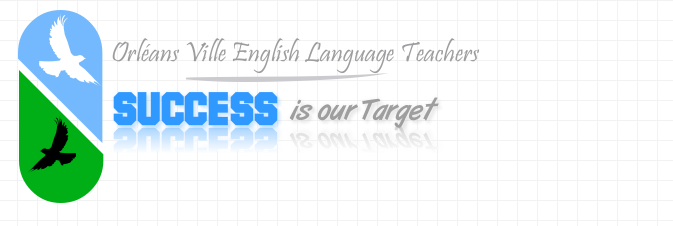Nacèra
V.I.P



|
 Subject: Manners, Etiquette & Politeness Quiz Subject: Manners, Etiquette & Politeness Quiz  Sat 20 Nov - 20:18 Sat 20 Nov - 20:18 |
|
|
Manners, Etiquette &Politeness Quiz
By Judy H. Wright 

Judy H. Wright
Level: Platinum
Judy is a parent educator, family relationship coach, and personal historianwho has written more than 20 books, hundreds of articles and speaksinternationally on ...
People with good mannershave the ability to make others feel comfortable. How you behave in socialsituations will have a big reflection on how those who work or interact withyou will perceive you and judge your character in other areas of your life.
Many times, you may make anerror in etiquette because you did not know any better. How polite are you? Doyou know the correct or accepted way to handle yourself in various situations?
Mark each question as true or false. Justwrite T or F next to the question.
- When you sit down at the table, you immediately unfold your napkin and put it on your lap. ( )
- If you must leave the table, place your napkin on the chair. ( )
- When you are finished eating, place your used silverware at the top of the plate and the napkin crumbled on the left side of the plate. ( )
- If the dinner is at a fine restaurant, always work from the outside in on your silverware. ( )
- When you set the table, the fork (4 letters) goes on the left (4 letters). Knife (5 letters) goes on the right (5 letters) with the blade turned toward the plate. Spoon (5 letters) goes on the right (5 letters) with the bottoms of all the silverware level. ( )
- If you used a coupon or received a discount on a meal, you still tip the waitress 15-20% of the full amount. ( )
- Turn your cell phone off or on vibrate. If you must take the call (if it is an emergency only), excuse yourself and leave the room. Do not carry on a conversation on the phone ever, when there are people sitting at the table with you. ( )
- Cut your food in small bites and keep your mouth closed while chewing. ( )
- It is good manners to always say please and thank you in all conversations.
- Polite people are pleasant to be around. ( )
All the answers from the quiz are true!
| | Discussion time:
In your opinion:
1) Is itgood to be extremely polite?
2) Goodmanners offend others?
3) A personcan be sincere and impolite?
4) What rules of behavior are important to you? Why?
Polite Expression in English
In order to be polite when you are speaking English, youneed to use these phrases correctly.
Excuse Me….
You say Excuse me when you want to go pastsomebody. You also say excuse me to somebody you do not know when you want toattract their attention.
Excuse me, could you tell me the way to the station?
Excuse me, is anyone sitting here?
Sorry…
You say sorry when you need to apologize for something small:
Sorry I'm late.
I beg your pardon is a formal expression:
I beg your pardon! I must have picked up the wrong bag by mistake.
Sorry or I'm sorry is used frequentlyin Britain English:
I'm sorry, but do you think you could move your car? (I apologize in advancefor any inconvenience.)
In American English Pardon me and Excuse me are usedfor apologies:
Excuse me/ pardon me, I didn't see you there.
In British English you say Pardon? Or Sorry? And inAmerican English Pardon me? Or Excuse me? When youdid not hear or understand what somebody said and want them to repeat it:
Pardon, could you say that again?
It is not polite to say What? If you have not heard or understood something.
I'm afraid…
You use the phrase I'm afraid… when you want to apologize because you have totell somebody something that they may not like:
I'm afraid there's been an accident.
Nina's not here at the moment, I'm afraid. Can I take a message?
'Do you have any decaffeinated coffee?' 'I'm afraid not.'
'Has the last bus gone?' 'I'm afraid so.'
I wonder if…
You use expressions which show hesitancy when you are asking somebody to dosomething or asking for a favor:
Could you just help me move this box, please?
I wonder if I could have a copy of that letter.
Would you mind if I felt a few minutes early today?
Do you think I could borrow your car this evening?
Please…
You say Please when you ask for something. In British English it introduces orends a request:
Please could I have the menu?
Could I have the menu, please?
You also use please when you ask somebody to do something:
Could you post this letter for me, please?
Please could you post this letter for me?
Thank You …
When somebody gives you something, or when you buy something or receiveinformation. You are expected to say Thank you or ()()(). Some people may beoffended if you say nothing.
It is not usual to say anything in response to Thank you in British English,Although some people may say That's all right, That's okay or Don't mention it.In American English you're welcome is common.
You say Thank you or Yes. Please when you want to accept something:
'How about another cup of coffee?' 'Thank you.' / '()()().' / 'yes, please.'
You say No, thank you or no, ()()() when you want you want to refuse something:
' Would you like some more cake?' 'No, thank you.' / 'No, ()()(),'
Cheers…
Cheers is often used in informal British English to mean Thank you:
'Here's that $5 I owe you.' 'Oh, cheers.'
You also say Cheers before you have a drink when you are with other people.
Source: Oxford Advanced Learner's Dictionary 1977
|
|

